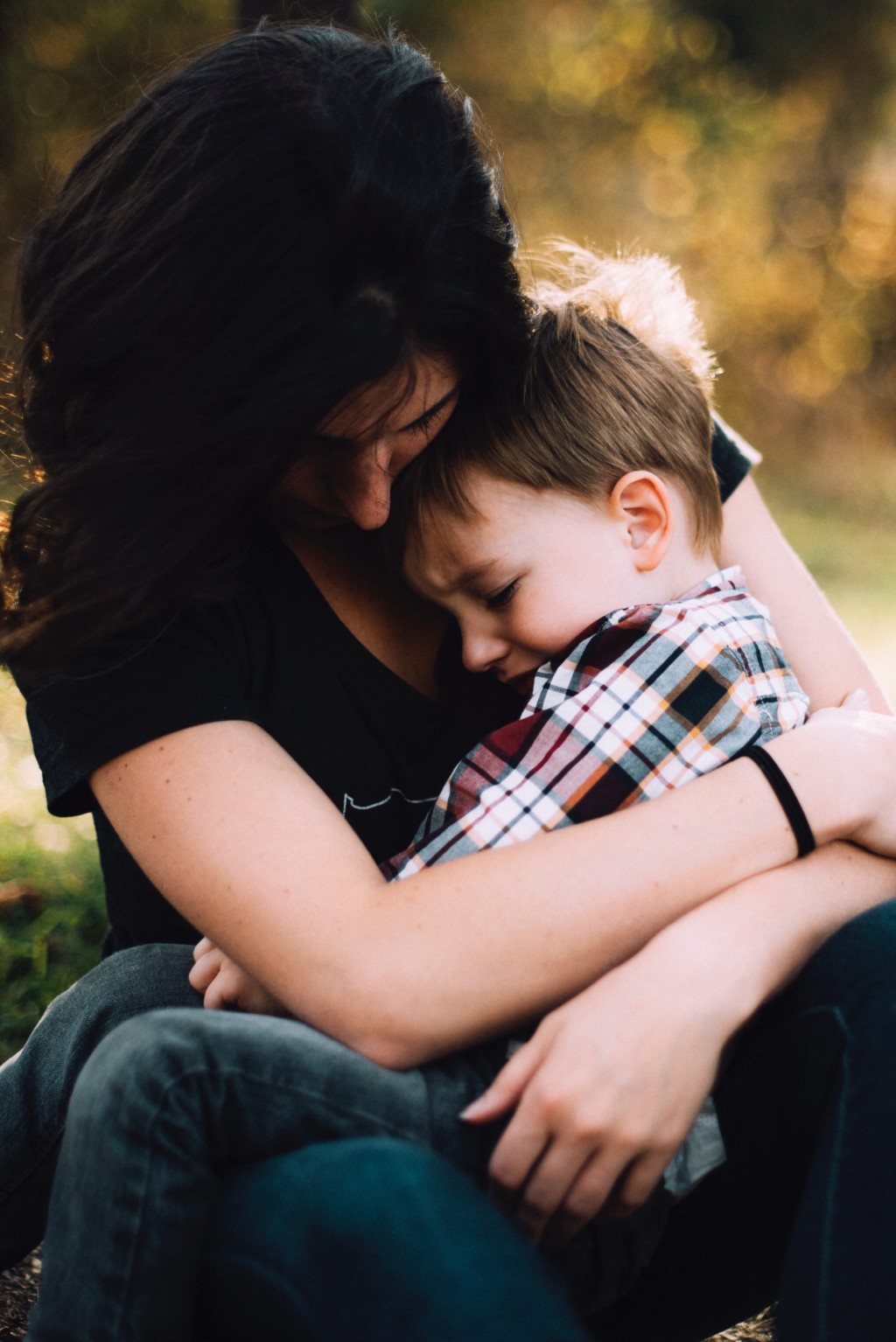
I remember very clearly the day my grandfather died. I was 13, and as a family we flew to Deadwood, South Dakota, where my grandparents lived. As we entered his home, I remember feeling his presence. I remember experiencing a pang of sadness when I saw his handwriting on a letter placed on his desk. It’s the little, unexpected things — like seeing their unique handwriting or their favorite tie hanging in the closet, never to be cloaked around his neck again — that sometimes impact you the most.
But, I didn’t cry. I loved my grandfather very much, but I was not close with him, nor did I see him often. The only time I did cry was when I saw my father’s grief at losing his father. This is what impacted me the most and stayed with me. I had never seen my father cry before, and witnessing his pain and grief was profound for me. Even though it was hard to witness, it showed my father’s depth, vulnerability, and love. It taught me it wasn’t scary to have these strong emotions; it was normal and necessary.
When I lost my own beloved father a month ago, not only did I worry about my own wherewithal to get through the grief, I worried about how it would impact my three daughters who were very close to my dad.
Here’s the thing, though: I didn’t try to be strong for my girls, nor did I hide my pain and grief. To do that would deny my experience and show an incongruence in how I was feeling and how I behaved. I wanted to model for my girls mindful mourning and, above all else, teach them that feeling sad, crying, and grieving are all normal and part of the process. I wanted them to learn to be empathetic and to know they can comfort mom the same way mom comforts them daily. Just as witnessing my father’s grief all those years ago taught me about my dad, about emotions, and how to handle them, this experience will also be a gift to my girls as they navigate their own ups and downs and learn to confront and fully feel, rather than fear, complex and difficult emotions.
Here are a few ways I’ve taught my girls to mindfully grieve:
We talk
As a family, we talk about my dad and allow space for us all to cry, laugh, or whatever else comes up in that moment.
We remember
By looking at pictures and videos of him, we remember all the ways he made us feel special, loved, and cherished.
We support each other
“I miss Grandpa” is a phrase we can say anytime and can be a cue for one of us to give each other hugs or back rubs.
We check in on Grandma
My girls have been calling Grandma to check up on her, to let her know they are there for her, and to cheer her up.
I cry in front of my kids
My girls see me cry — a lot. I don’t hide it, and I simply say, “Mommy’s really sad right now and needs to cry, but this is normal and I’ll be OK.”
We practice self-care
In our family, we talk about self-care and how to use movement, nourishment, and mindfulness to get through difficult stretches of times.
We accept help
We are accepting help. I am not teaching my children to be martyrs, especially during trying times. Friends and family want to help us, and we’re letting them. This, too, is a good lesson for my girls — that it’s good to comfort and help others and accept help and comfort when needed.
We believe all feelings are normal
It’s also normal and OK to not feel sad. It’s normal to feel numb or detached. Part of grieving mindfully is honoring whatever is happening, aside from our expectations or judgements about how we should feel in a situation like this.
Losing a loved one is extremely difficult. There is no right or wrong way to grieve. But my goal has been to do it with full presence and acceptance of what is, without judgement or timelines. Explaining loss and death to a child is never easy. And it’s different depending on the age of the child and his or her ability to understand. Each will process it in his or her own way. Some will move on quickly, and others might require a therapist. Honor what is. I don’t claim to have all the answers, and this post isn’t to dictate how others should explain death and dying. But this is what is working for us. No matter what you do, let your children know you will be there to shoulder their grief, too, in whatever way it shows up — now and months from now.
Has your child experienced a loss? How have you helped them get through the experience?














